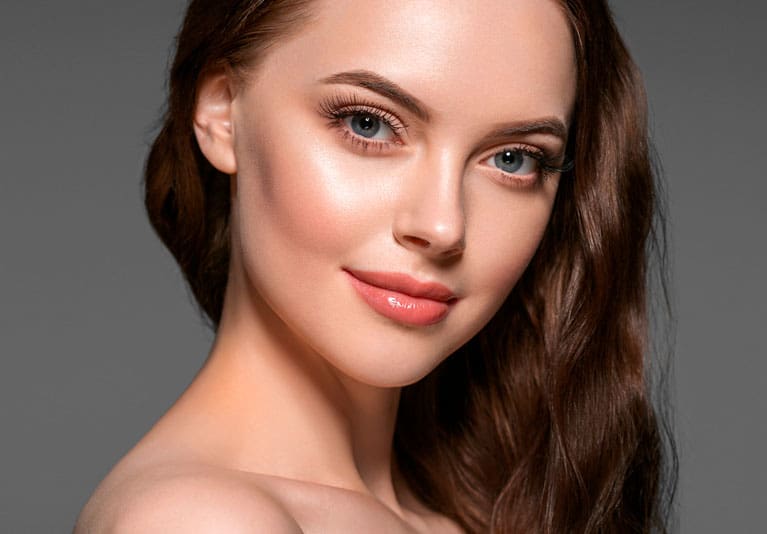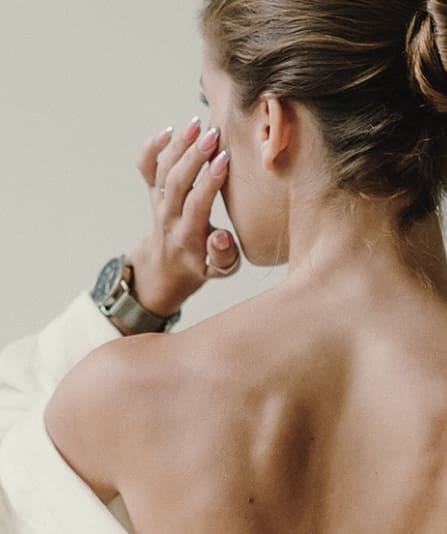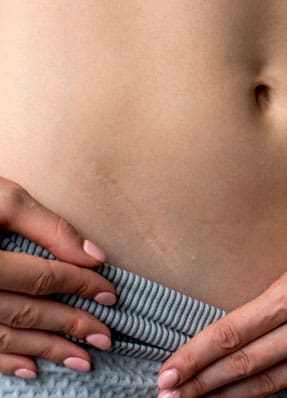During an IPL treatment, you can expect a non-invasive procedure designed to address various skin concerns such as pigmentation, redness, and fine lines. The session typically begins with a consultation where your skin type and specific issues will be assessed. Once the treatment starts, a cooling gel may be applied to your skin to enhance comfort, followed by the application of the IPL device which emits pulses of light onto the targeted areas. You might experience a sensation similar to a rubber band snapping against your skin, but this is generally well-tolerated. After the treatment, some mild redness or swelling may occur, resembling a sunburn, but this usually subsides within a few hours.
Restorative Skin Procedures by Mr Ioannis Goutos
IPL Treatment London

At a glance
Treatment time:
15-30 minutes depending on the area and size of skin being treated.
Return to work:
No delay.
Anaesthetic:
None or local anaesthetic cream.
IPL Cost:
Starting from £450
IPL (intense pulsed light treatment) at Goutos London is a non-surgical procedure that can be used in the treatment of skin marks and blemishes, prominent veins and also for hair removal.
What is IPL treatment?
Intense pulsed light (IPL) treatment, often compared to laser treatments, utilises broad-spectrum light to target various skin issues, promoting skin regeneration and improving the appearance of conditions like sun damage, age spots, and redness. This process, known as ‘photorejuvenation’, works by delivering multiple wavelengths of light to the skin, which penetrates to different depths and addresses multiple skin concerns simultaneously.
IPL is versatile and can be used on various parts of the body, including the face, neck, chest, and hands. It’s particularly effective for treating pigmentation irregularities, vascular lesions, and even unwanted hair. Unlike laser treatments, which use a single wavelength of light, IPL’s broad spectrum allows it to treat a wider range of skin issues in one session.
The procedure is generally safe and well-tolerated, with minimal discomfort and downtime. Most individuals can resume their normal activities immediately after treatment, making it a convenient option for those with busy lifestyles. However, the effectiveness and safety of IPL depend on factors such as skin type, the specific condition being treated, and the expertise of the practitioner. It’s important for individuals to consult with a qualified dermatologist or skincare professional to determine if IPL is suitable for their skin type and concerns.
Mr Ioannis Goutos is a skilled and experienced plastic surgeon, with a wealth of knowledge and expertise. He will be able to assess your skin and your treatment goals to find the most appropriate treatment plan for you. Mr Goutos specialises in the management of scars and burns, and takes a particular interest in both the physical and psychological factors affecting his patients. He is well suited to consulting and treating a host of cosmetic complaints and is adept at performing a number of surgical and non-surgical procedures, including laser and intense pulsed light treatments.
Book your consultation today
Book nowHow does IPL treatment work?
Intense pulsed light procedures work by creating a flash of light, which is comprised of different wavelengths in a more scattered pattern than in a laser beam. This means that the light energy emitted penetrates to a variable depth within the skin. The light energy is absorbed by the target component e.g blood vessel, hair follicle, and is then converted to thermal or heat energy. This helps to produce the desired beneficial effect ranging from minimising visible veins, reducing hair or pigmentation leaving the skin appearing clearer and regenerated.
Intense pulsed light treatments can be performed on the face or the body and are effective in reducing the appearance of:
- Dark or pigmented blemishes in the skin, including sun spots, age spots and freckles
- Birthmarks
- Stretch marks
- Acne
- Rosacea
- Prominent veins, including spider veins, varicose veins
Repeated IPL treatments are also effective in hair removal on the face or body.
Intense pulsed light procedures can be done during a clinic appointment. Following appropriate checks and assessment, the area of skin being treated is cleaned and then a special gel is applied to the skin before the IPL can be applied. This should be done by a competent and experienced clinician to ensure good results and minimise any adverse effects. The procedure is often described like a warm rubber band hitting the skin; most patient do not usually require anaesthetic cream before the session. Sometimes cooling packs or specialised devices can be used to soothe the skin. Following your treatment, your doctor will give you post-treatment and skin care advice.


Frequently Asked Questions about IPL
We know having medical, surgical or cosmetic treatment can seem daunting and it is natural to have questions. We are here to ensure your comfort and safety at all times. If you are unable to find the answer to your questions below, then please do not hesitate to contact us so we can help.
IPL therapy is commonly associated with some mild skin discomfort and redness following treatment, which usually resolves after a few days. Some people may also experience mild bruising. On rare occasions, IPL can cause blistering, hyperpigmentation or infection of the skin.
Intense pulsed light (IPL) treatment is generally considered safe for most individuals when performed by a qualified professional in a controlled environment. The procedure uses broad-spectrum light to target specific skin concerns, such as pigmentation, redness, and hair removal, without causing significant damage to the surrounding tissue. However, like any cosmetic treatment, there are potential side effects. To ensure safety and minimise risks, it is crucial to have a thorough consultation with a licensed practitioner who can assess your skin type and medical history before proceeding with IPL treatment. Following proper aftercare instructions also plays a vital role in achieving optimal results while maintaining skin health.
An intense pulsed light (IPL) session typically lasts between 30 minutes to an hour, depending on the specific treatment area and the individual’s skin condition. For smaller areas, such as the face or underarms, the procedure may take around 30 minutes, while larger areas like the back or legs could extend the session to about an hour. Additionally, patients often require multiple sessions spaced several weeks apart to achieve optimal results, making it important to factor in both treatment time and the overall duration of the complete IPL regimen when planning for this type of therapy.
Although intense pulsed light treatment works in a similar way to lasers, the device itself is not a laser. In IPL, there is a wide array of different light wavelengths produced in a flash-type of pattern, whereas lasers produce more direct beams of more specific wavelengths of light energy. This essentially means that IPL and lasers have slightly different treatment niches and outcomes. You should discuss all available treatments in depth with a qualified specialist prior to receiving any therapies to ensure that you are getting the right procedure for your aesthetic goals.
Depending on what you are having treated, most people have between 1 and 6 IPL procedures to achieve their desired results.
Intense pulsed light (IPL) treatment, commonly used for various skin conditions such as pigmentation, acne, and hair removal, can have side effects, though they are generally mild and temporary. Patients may experience redness, swelling, or a sensation similar to a mild sunburn immediately following the procedure. Other potential side effects include changes in skin pigmentation – either lightening or darkening of the treated area, and in rare cases, blistering or scarring. It’s crucial for individuals considering IPL treatment to consult with a qualified practitioner who can assess their skin type and medical history to minimise risks and ensure optimal results. Proper aftercare and adherence to post-treatment guidelines can further reduce the likelihood of adverse effects.
IPL treatment is less suited for individuals with darker skin tones due to the risk of hyperpigmentation following the procedure. IPL therapy is also not as effective in the removal of fairer hairs, and shows the best results in the removal of dark hair. IPL treatments are not best suited to effectively treat all skin complaints so it is important to discuss whether IPL therapy is right for you during an initial consultation, prior to commencing any procedures.
How much does IPL in London cost?
Prices start from £450
At Goutos London, we aim to deliver a premium service with no compromise on quality in order to deliver the best results possible for your needs.

Related conditions
Whatever your condition, and whatever your health goals are, we will ensure you get a holistic, focused and bespoke service that offers you the safest options for treatment aiming for the best possible outcome.
Testimonials
Mr Goutos is delighted to share some of his patient and peer feedback on their experiences of his services.














